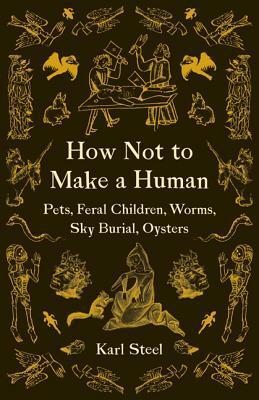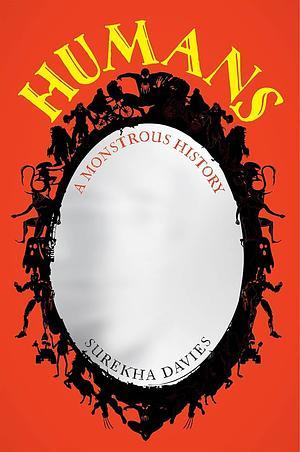#Thesis definition
Explore tagged Tumblr posts
Text
barbie is not an "anti man" movie at all. it's so obvious to me that the kens were written like idiots not to call all men idiots (well... maybe a little) but instead to show how easy it is for someone to get taken advantage of. it's important to remember that while the barbies and kens are played by and written as adults, they function in the real world and overarching narrative as adolescents that don't know very much about the world.
reading ken as a young boy, he's initially nice to the girls around him (if insecure, lonely, and feeling pretty disrespected) but as soon as he steps into the real world, he sees all these men who feel very secure in their masculinity and self-assured, and he wants that for himself. he falls into the trap of the patriarchy much like a lot of young boys in real life fall into extremist right wing ideologies. but ken's insecurity never really goes away, it just gets covered with faux fur and headbands and country music. it's why he cries and admits to barbie that leading was hard. he never really wanted to hurt the barbies at all, he just wanted to feel confident and accepted by everyone, but especially barbie.
ken was never the problem by himself. he wasn't made into the world hating women. he was manipulated and turned into a misogynist by society.
#i was struggling to put my finger on why i felt so strongly that barbie is not ''man hating'' as a lot of ppl keep saying#and i finally figured it out. hoorah.#theres also the additional nuance of barbieland having a reverse world where men are oppressed and i think that definitely impacts#ken as an individual but ultimately i dont think the implications of a matriarchal society are relevant to the greater themes#and thesis of the film#ramblings#barbie#barbie spoilers
3K notes
·
View notes
Text
What if Heavenly Demons come from being children of a ascended God with a Demon?
Of course, that would be an explanation for why they are relatively few, so powerful, and why the ones we know the most (LBG and ZZL) have their blood diluted. It is practically impossible for a pure offspring to arise between two Heavenly Demons unless it is direct incest. More than a species, they are a direct result of, who knows, a Blood Demon, where 90% of the Blood Parasites' abilities to heal or attack others could come from + the OPness of an ASCENDED GOD.
So it's not just that they've died out after a long lineage. It's that they've ACTUALLY been few and far between from the beginning. The Heavens know that even if immortality accompanies an ascended God and a demon, and even if they leave behind a progeny of, what, ten children over the course of a century?? there would be nothing but an internal war between the heavens and the demon realm to hunt them down. They have the best of both realms. They ARE part light - part dark. They can give in to the abyss in their hearts or embrace the goodness of the heavens. They can be something horrible or the best thing that ever happened to the world.
They are not the legacy of a dying species. They are not the worn-out result of what time and exhaustion do to the powerful. They are… the result of love. The result of a forbidden love that was perhaps kept secret. The result of an ascended God who loved too much, a demon who renounced the evil of their spirit, they are the children of those who betrayed who they were and who they believed for their family.
They are the legacy of something beautiful.
They are a legacy of love.
Imagine Shen Qingqiu, married to Luo Binghe, FINDING OUT ABOUT THAT.
#svsss#svsss au#svsss ideas#mxtx svsss#shen qingqiu#luo binghe#tianlang jun#heavenly demons#i'm very normal about this#tlj: yes well our origins are humble#lbg: *crying*#sqq: *thinking about how to tell his husband that he now plans to ascend just to procreate more heavenly demons*#sqq: *just for the sake of readjusting the species' food chain because there definitely SHOULD be more heavenly demons out there*#lbg: *sensing a disturbance in the force that tells him he must completely give in to his demonic heritage for some reason*#tlj: hmn well i think i'll leave you two alone UNLESS YOU WANT ME TO STAY TO WATCH then i don't object but#sqq: get out of here#tlj: yea exactly i assumed so#i just think it would be so nice if something that everyone sees as so dangerous was the result of something beautiful like love#also: bingge fell into the demonic darkness lurking in his heart while bingmei fell into the light of his spirit#in this thesis i-#bingqiu
136 notes
·
View notes
Text
You guys remember how my thesis came out absurdly long?
My thesis supervisor calls my reviewer to let her know he'll send her my thesis on Monday. She says okay and asks how many pages long it is. He tells her. There's a long moment of silence on her end and then she goes, "are you two crazy?"
#snhjsjdns#well#i hope she enjoys the read#anyway!!#did you catch the subtext here?#my thesis is almost done!!#i just have to fix the numbering#and then it'll be definitively finished#:'))))))#op#txt#thesis tag
83 notes
·
View notes
Text
WAIT



#i might need to revise the mclaren driver thesis#there are definitely better pictures to prove this point but these were the first i could find#ella is patoscar’s (?) child agenda#ella lloyd#oscar piastri#pato o'ward#f1#f1 academy#indycar#mclaren
72 notes
·
View notes
Text
some of you need to hate ai way more than you currently do
#i see so many tags like ‘this is ai :/ but its still cool!’ like how are you not absolutely filled with dread#how can you see what could be a beautiful image by an incredibly talented photographer-#realize it wasnt art created by a human and not immediately wanna kys#the very definition of art is HUMAN CREATION how the fuck can you stand shit with no meaning no talent no personality NOTHING#it gets fucking personal when the ai is of nature it makes me so fucking mad#mountains forests deserts oceans wildlife insects trees THERE IS SO MUCH OUT THERE AND SO MUCH YOU WILL NEVER SEE#AND BECAUSE OF THIS YOU DONT FUCKING QUESTION IF A PHOTO OF A WILD ANIMAL IS AI#YOU CANT SEE THE AI IN THE HANDS YOU CANT SEE IT IN THE ARCHITECTURE THERES NO HUMAN FLAWS TO POINT OUT#INSTEAD YOU JUST ACCEPT THAT ITS REAL BECAUSE WILDLIFE AND NATURE IS SO INCREDIBLE THAT IT DOESNT EVEN OCCUR TO YOU TO QUESTION IT#there are trees with trunks as big as houses!!!! we have only discovered 7% of the ocean!!!#nature is fucking insane and my favorite way to learn about it is through photography and i fucking HATE ai for taking that from me#GO OUTSIDE AND TAKE YOUR OWN PHOTOS OF WILDLIFE STOP FUCKING MAKING AI STOP REBLOGGING IT STOP STOP STOP#i did not make my entire college senior thesis a short film about birds of prey for you to make shitty bullshit ai images of an owl#kill yourself
222 notes
·
View notes
Text
Riddler: "Looks like you were too stupid to figure it out again, Batman. It's too bad--"
Batman: "Not really, I don't want to know."
Riddler: "You-- no wait. You have to try at least."
Batman, subtly undoing the knot: "Nope, you got me, just kill me."
Riddler, appalled as he lowers the gun: "Can I just tell you? I've got a really good--"
Batman: "Pass."
Riddler:
#riddler#ed nygma#incorrect quotes#batman#dc comics#bruce wayne#definitely not terribly original but amusing#that's the thesis of this account if you were curious#textpost#batpost
289 notes
·
View notes
Text
Ok. I’ve been compiling my thoughts on the pathologic 2 endings for a while now, and I’ve finally pinpointed my feelings on them (enough to share at least). I’m desperate to hear what others think about them too.
Lengthy Kin-themed rant oncoming? Perhaps.
More under the cut.
CW: Spoilers for Pathologic 2 (of course).
- - -
To preface: As I am Māori, not Buryat or of the other cultures I have heard the Kin to be based on, my perspective is more from *my* understanding of what it means to be Indigenous than anything else. There are probably many things I’m missing. But I’d like to throw in my two cents, however relevant they are.
Suffice to say, my feelings are complicated. Stylistically and narratively, there was a lot that I enjoyed. From a reconnecting/ mixed Indigenous perspective, however, I still feel unwillingly bisected, torn.
At the culmination of everything, Artemy Burakh and the player are roped into a cruel, two-pronged choice. Destroy the Polyhedron along with the miracles of the Steppe, or let the plague devour the town as you lead the Kin back to its heart. In these scenarios, you either assimilate the Kin into the town, which many of them will despise you for, or push out the nonindigenous townsfolk by force, letting nature run its course. Any third option has already been amputated, beyond your will. You cannot protect the Kin completely either way, some will likely die from the plague in the latter, and the more fantastical will in the first, by being cleaved from the earth’s dying magic.
Diurnal, or Nocturnal. No matter how you look at it, the kin cannot thrive in either. For it to be a choice at all, hurt, to say the least. After playing the bachelor’s route in the first game, I’m sure that was deliberate in an anti-utopian sense, perfection is impossible etc, etc. But the first lens I saw it through, stuck with me.
When I initially read Isidor say this after Artemy’s trial in the abattoir:
“Facing the Future is the way of Love. Facing the Past is the way of Love. But the two are incompatible, and it broke my heart.”
I was devastated. The hopeless dichotomisation of future and past… and I could only construe it as assimilation or death in some manner (but I could not see what role it took yet). That feeling festered for a while, but I wanted to see it from another angle. I think it's natural to be sensitive to the words “progress” (which is usually linked to “civilisation” and colonisation) when anchored against Indigenous culture, but I didn’t want that to blind me completely.
On its own, I do like this line. It’s weighty. And I think it articulates aspects of Indigenous struggle well, to some degree. Going back to the “past” is somewhat impossible for many reasons. Decolonisation is needed but I don’t believe it means restoring the “past” fully by any means. Culture is not stagnant, and neither is the future. To say they are incompatible though pains me. Especially when contextualised inside the divide between the kin and the town. It is an intentionally agonising line, and successfully so. Pitting the themes of Past/Future, against, Kin/Town, is something I find hard to reconcile with. Even just the first part irks me; personally the past walks with me at every step, the future is void and useless without it in full view. But I wouldn’t say a line from Isidor (or Artemy’s subconscious) necessarily defines the game more than it does his perspective. For me, it is the patterns that follow and precede it.
Aspity is a very obvious portrayal of what it looks like to “face the past” completely. Visiting her sanctuary, It becomes very evident that her opinions of the non-Kinfolk sway towards genocidal. They must “flood the town”, as she put it. Considering their treatment on the Bull Project and well… everything else, It’s not unfounded. During the night visits, we develop a growing understanding of what is at stake for the kin. Their language, legends, arts, and traditions, and too many Kin are dying from pest and persecution (Its a familiar story). Herb brides are forced to sell their cultural dance to get by (another familiar story for Māori, kapa haka and tourism, our culture has also become a commodity out of necessity). Legends like the shabnak adyr too are warped by the townsfolk (as it is used as an excuse to target Kin women). Assimilation means these things for them too.
There's also the case of how the Kin are depicted as more animalistic than the “more human” townsfolk. Oyun, Big Vlad, and even Artemy have a long history referring to them as such. To make the Kin less than human is inherently othering (as is any case where the empire views us as inherently more primitive or unevolved). The importance placed on Aurochs and being one with nature in Kin culture paints this in a less hostile light (Big Vlad’s view not so much). But I fear the effect this might have on player perceptions of the Kin will be negative regardless. I’ve seen a few statements about the Kin being a “hivemind”, I can't say I entirely agree. Many are divided on how they view Artemy, as well as what they desire for the future. I’ve also seen this in reference to when a few odonghe gift you organs for your tinctures, but at this point everyone in the town is desperate for a cure no matter the cost. Their more violent practices appear to weaken many fans' empathy for the Kin, painting the Nocturnal ending darker and darker. Getting rid of herb bride “marriages” would be a good thing at least right? Assimilation might be a good thing then? Nothing good comes without cost, and for the Kin this cost is too steep. Survival doesn't have to mean losing yourself piece by piece.
I will say that despite liking the non-Kin townsfolk, I do wish there was a larger Kin presence among the main roles. While we have Nara, Aspity, Oyun, and Taya, I understand how their presence does little to assuage the dread of seeing the rest of the cast wade out into the Steppe. For me, seeing Murky and Sticky in such a lost state during the Nocturnal ending, made me unable to see it as anything but a mistake.
Two other alternating themes are present through the endings. Childhood (miracles and dreams) and adulthood (waking up and walking forward). The dominant presence of children in Nocturnal, and the fact that walking through the near empty town really does feel like a nightmare, showcases this. The impossible has been made possible, the earth sleeps, sated. The endless cycle of responsibility, from father to son, from parent to child... Children rule the future here. In Diurnal, this cycle, at least, has some room to be broken. Responsibilities are weighed more evenly. Letting go of miracles and childhood dreams, that is the only future in this end. I’m not sure If i have to discuss how problematic it might be to place indigenous revival in the realm of childishness, and assimilation in the realm of growing up, but i thought i'd leave the notion there regardless.
Leaving how you view the two ends aside, it's obvious that Nocturnal has a heavier, gloomier tone.
Maybe having a third ending would’ve been reductive, to have one person so easily find a solution to unifying the town. But, it hurts so deeply to have that choice wrenched from your hands. The choice might have been severed by Isidor, but it felt like so much was possible for Artemy. With one foot in both worlds, the potential of true reconnection, i thought we could move past what was possible for his father. It felt like that was the direction Artemy was moving in, seeing the choices before him and bullheadedly trampling through the middle. Just like he did with the cure, finding the impossible connection.
As it stands, the endings are brutal. Survival for the kin is held by a thread, regardless of the direction you look. They either die a physical death, or a cultural and spiritual one (the two could very well be interpreted as present in both depending on how you look at it). By your conversations with Aspity, even if they survive, the Diurnal end is hinted to lead to an essential “dissolution” of the Kin as they know it. Wherein the differences between the Town and Kin will become so negligible that the two are no longer distinct. Which from my perspective is its own, however voiceless tragedy.
Ok, that was a lot of negativity but I’d like to be candid. Even despite all that, Pathologic is still one of my favourite games of all time. I saw someone say on here that Pathologic 2 is most interesting when allowing the player to decide where love takes them (even if they are led to extremes). Love being at the forefront, regardless of the choices you make, no wrong answers, that's what I appreciated most when playing as Artemy. Whether you chose to kill the three odonghe for Rubin, begged him to stay despite everything, killed Oyun, the Oglimskys, or the pest, it was for the love of something. The internal strife of having a mixed identity too, the rejection and affection from both sides, is something I related to even if the circumstances were miles apart from my own. I wish that Nocturnal aligned with that energy, that the nuances there were a little less stark. That opposing assimilation felt like less of a mistake.
There's a lot more I could delve into but this is pretty long already. This post could all read like nonsense/surface level, but I’m curious to see what other people think! Especially other indigenous folk, I’m dying to know how others interpreted the endings regarding the Kin.
#I'm sure there are definitely way more themes I haven't discussed/thought of#I’m also yet to finish Artemy and Claras routes in classic HD so my thoughts are obviously less contextualised#but i couldn't wait any longer#Ok I need to get back to my thesis now fr someone chastise me#pathologic#pathologic 2#pathologic 2 endings#criticism#txt
162 notes
·
View notes
Text
i just wrote a whole post on how david and roger’s perception of each other ultimately led to their downfall and it started off as like a paragraph of surface level observations and somehow morphed into an essay length analysis that i can’t possibly justify posting 😭 i did kind of cook tho ngl i’m proud of her

#lena.txt#me when i’m normal#roger waters#david gilmour#pink floyd#watermour#even if i wanted to post it i would need to clean it up bc rn it’s just a huge mess#like it’s basically just a pure manifestion of my adhd#i got derailed multiple times like i never strayed completely from the point but i definitely had a lot of tangents#at some point i started talking about the seven deadly sins and how they pertain to the disharmony of pink floyd 😭#and obviously it’s completely opinion based so i can only use what facts or ‘evidence’ i do have to support my thesis#but i still think i did a pretty good job at capturing the full scope of things#even tho 99% of the time i’m like yeah i think this could be something but i am often wrong#i think this one came out pretty good and obviously there will always be a bias when it comes to anything opinion based#but i think it was a pretty fair analysis that doesn’t really favor or place much blame on either of them#it’s just how it is 🤷🏻♀️#also it’s actually based on my tags from another post i reblogged like last month about david’s perception of roger#and somehow it turned into a mini essay with a word count of 1.5k#of course if i go back and edit it i’m sure it will inevitably become longer and closer to 2k#also there’s nothing romantic about it in nature at all like the one reference made to intimacy is strictly about emotional intimacy
33 notes
·
View notes
Text
kataang is fun cos it’s the ancient spirit of good who’s been incarnated over and over to fight evil as it rises since before the continents were set + a small town girl with issues, and it’s the small town girl who goes “who hurt you 😡”
#my headcanons#my posts#katara definitely calls aang ‘kitten’ but like#not in a discord way#she just thinks it’s cute and is unaware of the tiktok significance#atla#atla katara#katara#atla aang#aang#avatar aang#kataang#kataang makes each other better and azutara makes each other worse#that’s my thesis on my two katara ships#100#200
260 notes
·
View notes
Text









Was tagged by @starfoozle to share some of the books on my to-read list for 2025 (thank you, friend, this is a fun one!)
First on my list of reading goals is actually to try to finish at least a couple of the in-progress books I carried with me into the new year, but for this challenge I picked ones I haven't actually started yet -- with the exception of Wonder and the Order of Nature, which I read a chapter of for a class years ago and loved (and which may or may not end up being the beginning of PhD dissertation reading in 2025).
This list is mostly non-fiction, as is my wont, though there are a couple fiction books in here for once -- both recommended by friends, so I'm slightly more optimistic I'll actually read and enjoy them. I hear tell the Rivers of London series even has a canon aromantic character, and that Mongrels is actually good werewolf fiction, so I may scratch a couple itches with my reading this year.
Tagging @marypsue @tam--lin @eternalgirlscout @so-i-did-this-thing @lafseanchai @professionalowl and @eighthdoctor, though of course there's no obligation to participate (I just suspect all of you have excellent to-read lists, haha)
#there are definitely some predictable themes here. monsters and gender most obviously#but again. if all goes according to plan. that's the phd thesis too#i set a reading goal of 25 books this year which is maybe ambitious (i read 23 last year but also half of those were dungeon meshi volumes)#but i've been steadily increasing my books per year for a while now and a little ambition isn't necessarily a bad thing#reading more fiction again is one of my adjacent goals but we'll see how that goes#the amatonormativity tends to get me with a lot of books#i'm always open to book recs though! fiction and non-fiction both
55 notes
·
View notes
Text
I swallowed my pride at last and emailed my professor to tell him I can't derive the formula myself and I was like "I'm all out of ideas" and I was 🤏 THIS close to adding "AND ALSO PATIENCE"
#that would've definitely made him laugh but im enough of a clown already i think#i feel like he's never had such an incompetent student before 🥲#txt#op#thesis tag
106 notes
·
View notes
Text

Religious Schools v. Children’s Rights - James G. Dwyer
#this book is from 1998 and is not only still relevant#but things are more dire than when he wrote this book#there’s definitely some things I agree with#and parts where his analysis is very much lacking#but overall this is a really really good book#and this part is basically his thesis#highly recommend if you study religion or education or public policy or children’s rights#children#children’s rights#youth liberation#education#religion
22 notes
·
View notes
Text
To anyone interested in queer interpretations of Herman Melville's Moby Dick I strongly recommend reading Emma Rantatalo's thesis "A Cosy, loving pair”? – The Elusion of Definitions of Queequeg and Ishmael’s Relationship in Herman Melville’s Moby-Dick.
This text explores the intersections between queerness and race in the context of the relationship between Queequeg and Ishmael and has some really interesting things to say both about how them being an interracial couple makes their relationship possible (within the context of the time and place it was written in and takes place) in the first place, while also exploring how that fact has lead to so many people arguing against interpreting their relationship as romantic or sexual.
In doing so the paper explores and critically examines, among other things:
how Ishmael's race is not often discussed, because society sees whiteness as the default
Queequeg's classification as an other, but simultaneous deviation from then common tropes about non-white characters like the myth of the noble savage
the link between homosexuality and cannibalism in 19th-century perceptions
the myths built around Herman Melville due to his posthumous classification as a "great American writer"
Rantatalo's paper was a very interesting and enlightening read and my hope is that this post will convince at least one other person to check it out.
#moby dick#queer studies#literary analysis#herman melville#queer literature#ishmael#queequeg#queeshmael#shipped men#emma rantatalo#“A Cosy loving pair”? – The Elusion of Definitions of Queequeg and Ishmael’s Relationship in Herman Melville’s Moby-Dick#race#queer classics#thesis#classic literature
171 notes
·
View notes
Text
5k/10k of my thesis completed 👍 we might be so back (<- girl who has 3 days to do the rest)
#turns out i'd drafted a huge chunk of it and forgotten so that's fun#that past version of me did a great job#i'm still struggling but i can definitely . hand in a thesis on thursday 😭#is it a good one? no#but at least it will be done#i hate that i could have made this project really good but i've been too autistic to do that#typing it out now is making me think ummm actually this could be great#in another world i might have enjoyed it#<- trying hard to remember that this thing has plagued me for almost a year and i Hate it#unrelated but i bought small coffee this morning omw to the library and the guy gave me medium instead. free upgrade lmao#taking that as a good omen#so maybe it's the caffeine and the fact i've made very good progress in the last hour but i'm optimistic now#it's sinking in a bit that this thing is getting me a degree 😭 wild
23 notes
·
View notes
Text
having a keyboard going clicliclicliclicalcalcalcalcalclclalcalcl does boost my productivity

#its soooooo ironic working on this essay because my work-life balance is nonexistent#at least when i was still studying pharmacy#LMAO#ok but#im so proud to condense like a series of definitions (there are 3 pages of tables of diff authors and definitions) to one sentence#look look#It is understood that work-life balance is not a rigid framework-#but a continuous adjustment in response to personal priorities and external demands#EH? pretty “assignment” worthy sentence dont ya think?#im literally trying to hype myself up to finish this dang assignment to pass this subject bruh i hate SKDJGDHKJH#i'll do anything from gaslight to rewarding myself with something imaginary hakjsfhkdfjh#my sister say i shouldnt whine about quite literally the last uni work i'll be doing but i will LMAO#i know i still have to write reports and thesis when i work so i will whine when i get to that point in life too#yk what is funny?#this assignbment is a self reflection theme essay - not a lit review#which somehow is even harder for me cuz bruh i dont like to talk about my life like HAKJDHKJH#like yes i yap alot here about my irl stuff but i hate doing that into paper and needing to make it sound professional#like okay how the hell am i suppose to write “so like assignments and short deadline literally makes me wanna kms” into paper KJHCKLZJGSDHK#sum sum stress and burnout i guess urghhhhhhhhhhh#gomz whining about uni once more#gummmyspeaks#thank you keyboard#LOL#cuz now i wanna keep typing bcuz it sounds amazing ahahahahahahaha
24 notes
·
View notes
Text
Can we talk about how in A Glitch In Time Danny is obviously not 14 anymore?
Because he says that Vlad has been messing with him and his family for YEARS
I'd say he could be maybe 16-17?
Or something
But he's definitely not 14 in A Glitch In Time
#roxa rambles#danny phantom#dp#phandom#phantom#danny fenton#a glitch in time#post agit#dp agit#agit#P.S wasn't jazz working on her thesis or smth in agit? (man I gotta read agit again)#yup he's definitely not 14#he says Vlad has been going on with his nonsense for “the last few years”#HE'S GROWING UP#HE'S NOT 14 ANYMORE EUEUEUEUEU#MA BABYYYY-*sobs*
99 notes
·
View notes